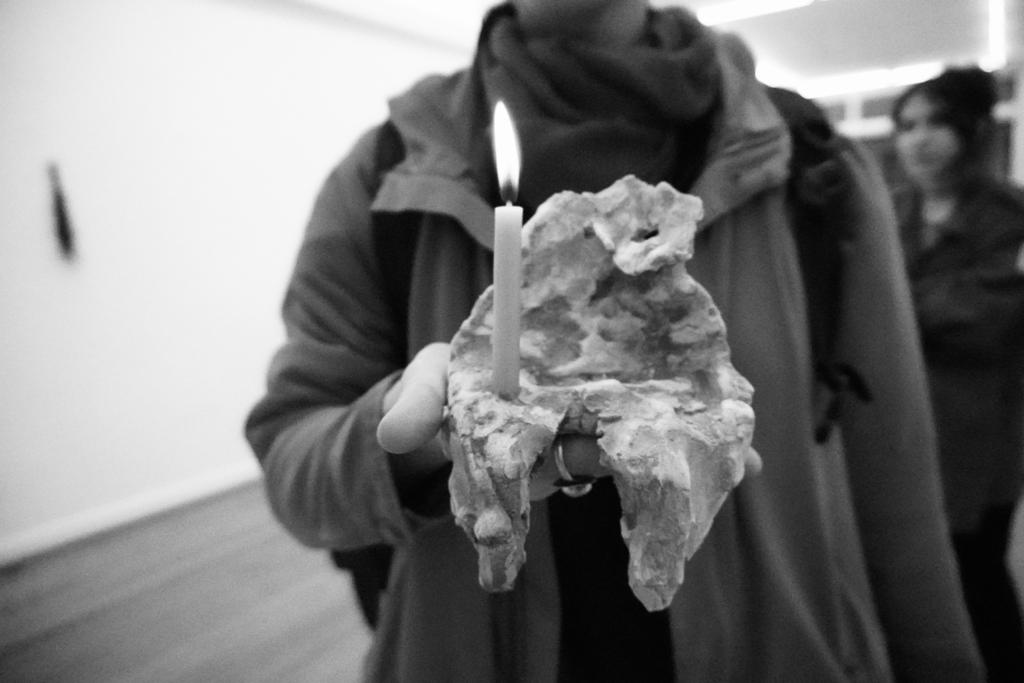
Prótesis
Objetos, para atender la lentitud
Talk
-> Jan 20 2024
On the occasion of the closing of the collective exhibition Prótesis. Lenguajes corporales El Palmar presents the talk Objects, to address slowness, in which the dancer Coral Montejano, the artist Sandra Sánchez and the curator Mariana Lagunes will participate.
In this talk, there will be a discussion about the relationships that the body has with time, rhythm and breathing, and there will also be an activation with ceramics.
Coral Montejano is a dancer, choreographer and researcher. Her interests lie in thinking about the relationship between dance and writing; her as well as the dialogue between the ephemeral, permanence, the archive and body memory. Her work is mainly informed by somatic practices such as the Feldenkrais method or Contact Improvisation.
---
About prosthetics and body languages
By recognizing our nature constructed and mediated by visual devices and images that make up our real — and not so real — imaginary universe, we find that our senses and our minds have always been limited, not only conceptually but epistemologically; something that would imply robust research that generates new scientific, clinical, epistemological and sensitive methodologies to identify new needs, materialized in what we want to feel or even think about going beyond the dimensions we know in space-time. The first mediator in everything that affects us is always our body.
The most rudimentary engineering technology of Mesopotamia consisted of the creation of the wheel (3500 BC) with a practical function that demonstrates a clear example of variable use that later evolved. The wheel was an object that served those who inhabited the Earth, so that their body would not be broken by heavy loads; He optimized life in the face of what was pitifully heavy and dangerous. A need that embraced the foundations of primary form creations.
This exhibition includes the work of contemporary artists and researchers: Fernanda Barreto (Brazil, 1988), Valeria Montoya (Mexico (1983), Lucía R (Mexico, 1988) and Sandra Sánchez (Mexico, 1988) who draw on diverse methodologies and languages. to observe, reflect, question and finally create devices that generate ways of being and being, from art. Through ceramic sculptures, metal lenses - forks, spoons -, steel structures, remains of hair, hanging installations made with lead, and others with sound ceramics made with and for the body; they build corporeal affective bonds that draw the processes of the future; an ethereal embrace, its echoes in each movement, its power.
In action and at rest, this tour of ingenious pieces proposes to the viewer a visual narrative that puts the limits of the material and the sensory in dialogue, and brings us closer to the notion of the body in a way that merges with the universe in all its aspects. dimension. Currently, we can conceive a prosthesis as the search to create space and time for our bodies: material and affective; and give meaning to the testimony that crosses the lines of rigid matter but also with that which seems ethereal. Something that challenges the limit of what is possible to achieve.
From the observation of the body, its need to sustain itself, to expand and to reinvent itself in the ways of being; These works show us their performativity; in a direction that seeks to investigate the depths as well as border and paint on its new horizon. In walking, the prosthesis is the ethereal embrace that returns longing to the absent body. It is a state of rest in terms of its weight, movement, sound or vibration.
Of prostheses and body languages is an exhibition that talks about the body's tendency towards entropic expansion. Of the search for space through an ingenious artifact that makes new ways of living flourish, of dancing and giving meaning to the wind, of listening to sound, of carrying one's body, of half-seeing and speculating about our capacities liberated from submission. , eager to support and proud to be a complement.
— Mariana Lagunes